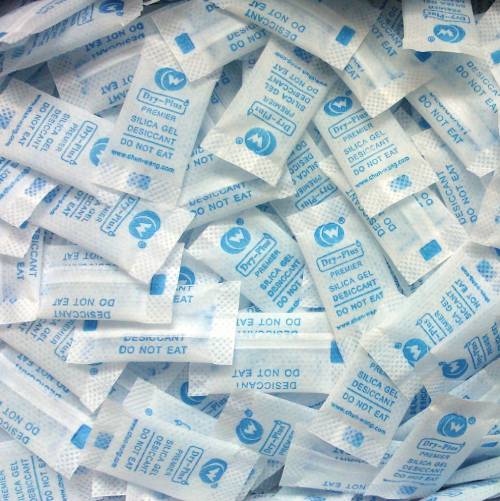My dog ate silica gel, is it really toxic?
Discovering that your dog has consumed silica gel from various packaging materials can be cause for alarm. Becoming informed and taking appropriate actions are critical steps towards safeguarding his or her health and well-being; in this article we explore this subject further and outline potential toxicity as well as necessary next steps should your canine have inadvertently consumed it.
What Is Silica Gel? Silica gel is an antimicrobial desiccant used to absorb moisture and keep packaged items, like electronics, shoes or medications dry by keeping the inside air moisture-free. Usually packaged into packets in small sachets for easy distribution it serves its intended function well in humid environments like homes.
Are the Materials Found in Silica Gel Harmful to Dogs?
Silica gel itself is not highly toxic to dogs; rather, the primary risk lies with potential choking hazards if too much or the entire package are consumed at once by your pup.
Choking Risk: Silica gel packets come with small size and texture that pose the threat of choking or intestinal blockage if swallowed whole, potentially leading to choking hazards and/or intestinal blockage if they’re consumed whole.
Digestibility Issues: Due to not being digestible, large amounts may cause stomach upset resulting in vomiting or diarrhea symptoms.
Toxicity of Silica Gel Packets: While silica gel itself is nontoxic, some packets may contain additives or moisture-indicating chemicals which could prove hazardous should they come into contact with skin or food and become consumed.
Signs and Symptoms Choking or Coughing: If the silica gel packet becomes lodged in your dog’s throat or airway, it could result in choking or coughing, as the body attempts to expel any foreign substances such as silica gel.
Vomiting and Diarrhea: Consumption of large quantities may result in vomiting and diarrhea as the body attempts to flush away foreign materials ingested into its system.
Gastrointestinal Issues: Gastrointestinal upset may include abdominal discomfort, bloating or decreased appetite if gel causes irritation in your dog. Behavioral Changes: Unusual behavior such as lethargy or decreased activity levels might occur if your pup is experiencing discomfort.
Stay Calm: Staying calm will allow you to assess and provide appropriate care for your dog in any given situation. Remove Packets: If a silica gel packet is visible and within reach, take steps immediately to safely extract it from their mouth to avoid further ingestion or possible choking hazards.
Keep an Eye Out: Keep a close watch over your dog to detect any symptoms of distress or discomfort, such as changes to behavior, appetite or bowel movements. Note any significant changes.
When to Seek Veterinary Care
Choking or Obstruction: If your pet is having difficulty breathing, excessive choking, or shows signs of an obstruction, seek professional veterinary assistance immediately.
Severe Symptoms: If your dog exhibits serious vomiting, diarrhea, abdominal pain or any other concerning signs, it is advisable to visit a veterinarian promptly.
Additives in Silica Gel Packs: Ingestion of silica gel packets that contain additives or moisture-indicating chemicals should always be evaluated by a veterinarian, in order to assess any possible toxicity issues.
Preventative Measures
Secure Packaging: For your dog’s own protection, always store silica gel packets safely out of his reach to avoid accidental ingestion. Its Pet-Friendly Environment: Create an ideal home environment by clearing away potential dangers like silica gel packets from accessible areas in order to create a pet-friendly space where your pup may live safely and responsibly.
Silica gel itself may not be highly toxic to dogs, but it’s wise to remain aware of potential risks related to ingestion. If your pup has consumed silica gel accidentally, closely monitor for signs of distress or complications; and contact a vet as soon as you suspect any severe reactions for further evaluation and health protection of their beloved companion. Prevention and providing pet-friendly environments is key when keeping our four-legged friends from accidentally ingesting substances like silica gel accidentally!

